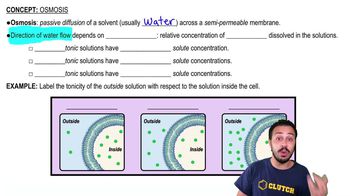How do the phospholipids in archaea differ from those in other cells?
a. They have tails made of unsaturated fatty acids instead of saturated fatty acids.
b. They do not contain hydrocarbon chains.
c. They have isoprenoid tails instead of fatty acid tails.
d. They have two hydrocarbon chains instead of three hydrocarbon chains.





